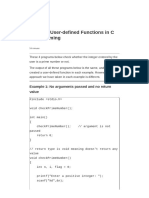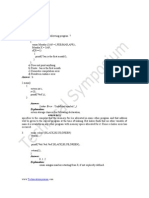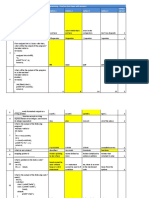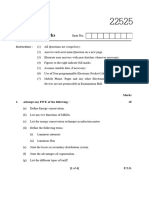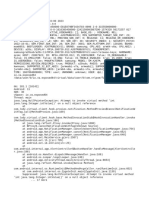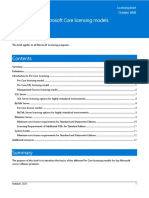0% found this document useful (0 votes)
76 views4 pagesExperiment No 3 Function in C
The document describes 4 examples of functions in C without and with arguments and return values. Example 1 defines a function checkPrimeNumber() that takes no arguments and returns no value, it checks if a number is prime and prints the result. Example 2 defines a function getInteger() that takes no arguments but returns an integer value entered by the user. Example 3 defines a function checkPrimeAndDisplay() that takes an integer argument but returns no value, it checks if the argument is prime and prints the result. Example 4 defines a function checkPrimeNumber() that takes an integer argument and returns an integer value indicating whether the argument is prime or not.
Uploaded by
raju chandanshiveCopyright
© © All Rights Reserved
We take content rights seriously. If you suspect this is your content, claim it here.
Available Formats
Download as PDF, TXT or read online on Scribd
0% found this document useful (0 votes)
76 views4 pagesExperiment No 3 Function in C
The document describes 4 examples of functions in C without and with arguments and return values. Example 1 defines a function checkPrimeNumber() that takes no arguments and returns no value, it checks if a number is prime and prints the result. Example 2 defines a function getInteger() that takes no arguments but returns an integer value entered by the user. Example 3 defines a function checkPrimeAndDisplay() that takes an integer argument but returns no value, it checks if the argument is prime and prints the result. Example 4 defines a function checkPrimeNumber() that takes an integer argument and returns an integer value indicating whether the argument is prime or not.
Uploaded by
raju chandanshiveCopyright
© © All Rights Reserved
We take content rights seriously. If you suspect this is your content, claim it here.
Available Formats
Download as PDF, TXT or read online on Scribd
/ 4


